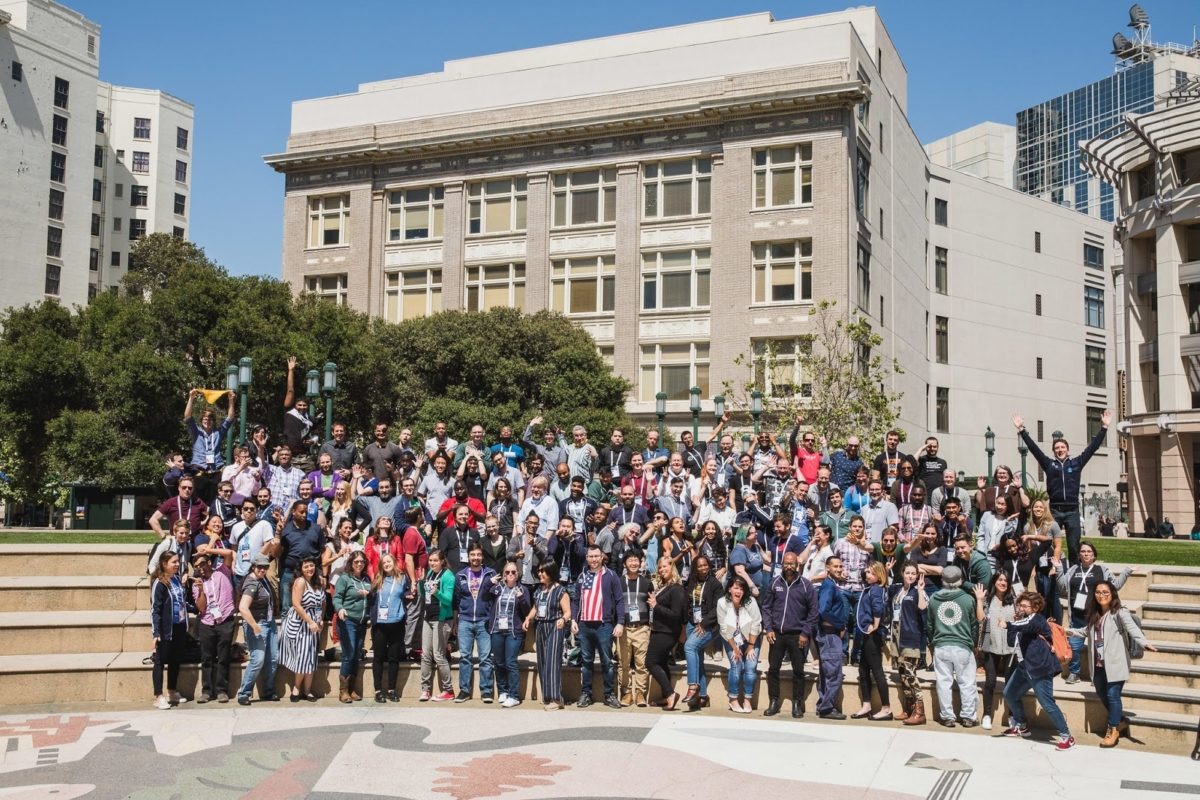- News and Stories
- Blog post
- Local Initiatives
From Local Organizing to a National Movement
As a kid, I wanted to be a vet or a public school teacher when I grew up. If you’d told me I’d end up in a career as an organizer, I’d assume I spent my days cleaning messy desks or color-coordinating closets.
In college, I did very little to advance my childhood career dreams. I spent my free time (and most of my class time, to be honest) pushing the administration to adopt gender neutral housing, recruiting peers to advocate for more foreign aid, and running my student government election campaign. It took me a few years to understand that this kind of work was part of a long history of processes, skills, and power-building that had a name: community organizing. And it took a few more years to realize—to my surprise—that community organizing could also be a career.

Since then, I’ve spent more than a decade organizing on issues of economic inequality, global poverty, eliminating nuclear weapons, ousting establishment Democrats in a primary… the easy stuff. In each of these issue spaces, I feel humbled and honored to have played a role in developing the strategy, infrastructure, and community connections that help demonstrate what diverse groups of people can achieve when they come together behind a common vision. Just look to days of action like the Women’s March, the People’s Climate March, or the March on Washington to see what people power can do.
This work has also taught me that single issue organizing isn’t enough. The systemic challenges we uncovered in each of these issue spaces—extreme poverty while we invest $1 trillion in weapons of war, the CEO of Raytheon making billions while workers and nuclear facilities can’t get their health care paid for, Democrats taking millions for fossil fuel companies greenlighting fracked gas plants—all stem from a similar root cause: our institutions of our democracy are working for the wealthy and well connected, not for the people who need them most.

It’s a crisis of our democracy that’s at the root of today’s major social issues—from climate change to racial inequality to income inequality. It’s the core crisis that Code for America is trying to help solve, by making government work for the people who have historically been left out. And, like every major systemic change in history, it’s going to take a people-powered movement to make it happen.
That’s why I came to Code for America, and why I’m so excited to be involved with the Brigade Network—83 Brigades and growing, with more than 25,000 active volunteers. It’s an emerging, people-powered movement with extraordinary potential to help restore faith in government and reclaim our institutions for those who need them most.

And I’m so excited that this weekend, we’re holding our first ever collective action across our entire national Network on National Day of Civic Hacking. Leaders in the Brigade Network chose to focus our efforts on criminal justice reform, dovetailing with Code for America’s work on automatic record clearance. This issue is urgent, and local work is imperative in addressing it. We believe government can work dramatically better than it does today, and the criminal justice system is one of the areas we are failing the American people the most.
In organizing around these efforts on a collective day of action, the Brigade Network will join the growing movement of advocates, lawyers, and those directly impacted by the criminal justice system to help to remove barriers and create pathways to opportunity. We’re also excited that this year, National Day of Civic Hacking coincides with National Expungement Week: an effort led by community-based organizations across the country to help people begin the process of clearing their criminal records. We are honored to support National Expungement Week and organizations across the country to provide free legal services to people with eligible convictions.
This moment in time demands a lot from us. It sometimes feels like democracy is eroding before our eyes, and we need to mobilize from every corner of the country to meet the scale of the crisis. It’s time to remake our institutions in a way that centers those who have historically had the least power. That work starts small, and starts locally. If we’re going to put people first, we have to start with what matters most to people on the local level. And that’s why I’m so proud to be a part of the Brigade Network, where we know that engaged residents who volunteer their time to improve people’s lives in their own communities are on the front lines of helping to restore faith in government and reclaim our institutions to work for those who need them most.
Want to join the movement? Find a National Day of Civic Hacking event near you.